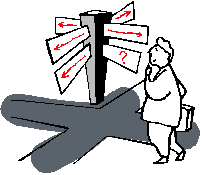|








| |
-
There are innumerable different kinds of indoor games that can be
played, in addition to the more obvious card
games or computer games.
-
The
possibilities range through the various types of board games (scrabble,
monopoly, chess and draughts to name but a few) to acting and party games,
like charades and musical chairs, that can involve quite a number of
people in team activities.
-
The latter tend to more associated with
family gatherings and special events, while some of the board games are
played very seriously and competitively. Indoor games can be played
by people of all ages and both sexes.
-
For more information on particular games, consult one of
the specialist organisations listed below.
|
|
Role Playing Games Association
rpga.ukonline.co.uk/
British Chess Federation www.bcf.ndirect.co.uk/
Scrabble FAQ and other crossword game resources www.teleport.com/~stevena/scrabble/
Hampshire Scrabble Newsletter www.hollington27.freeserve.co.uk/
British Table Football Association www.btfa.dircon.co.uk/
|
British Chess Magazine
Chess Monthly
Miniature Wargames |
-
Find a local group
or club that plays the kind of indoor games that interest you (see organisations above).
-
Take a class or course at your local
adult education centre or see if your local group runs introductory
sessions.
-
Consult books or magazines
on different types of indoor games.
-
Check in your local library/paper
or education centre for more information.
|
Skills and people
-
Most games are quite easy to
pick up, but there can be a high level of skill involved among the serious
players.
-
Some indoor games can be
studied and even played at home on your own.
But many games require at least one opponent and players often enjoy
the stimulus and social contact of belonging to a group of some kind.
-
Some people play just with friends and family, while other join a local group, or one linked by mail or Internet contacts.
Groups are also important as organisers of competitive events.
Equipment or clothing
-
Each game has its own requirements in terms of board, playing pieces,
or other items. Some acting or word games require little more that
pencil and paper.
-
Team and party games may have more extensive
requirement - set of chairs, music etc.
A place or facilities
-
No special facilities are needed, other than enough space and/or a
table on which to play.
-
Groups usually meet in a local hall
or room, or sometimes at members' homes.
|
|
